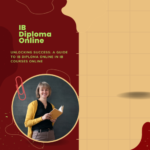The IB IA, also known as the IB Internal Assessment, is one of the key components of the IB courses in the IB Diploma Programme. Each IB subject you take up from the IB courses, has IA as one of the key assessment components.
Now, why do you think that the article is a must read for you?
It is because IBDP students often miss out on the importance of IAs. As IB students, you might often get derailed and overwhelmed by the complexities posed by every IB course on which you are assessed through the external assessments. So, eventually what happens is, your sole focus is on the exam papers or external assessments. You tend to neglect your IAs, presuming that IAs can be lightly handled later as they are evaluated internally. Down the line you get gullible to tremendous pressure before the IA submission deadline. In a hurry worry phase, your quality of IA dilutes and you cannot come up with ‘the perfect’ IA. Moreover, get to lose on the bigger picture that IB IAs for each IB subject are equally important components contributing to your overall IB score.
Surprisingly, students also seem to overlook that IAs are components which are within their control and can be well managed under the guided supervision of the IB subject matter experts as their IB subject teachers in school. It is in the purview of the schools to orient, guide, and support the students with their IAs- starting from the choice of the topic, research question, research methods and approaches to the IB IA assessment criteria. Yes, a thorough guidance on the IA assessment criteria, marking scheme, mark bands, and level descriptors help students to see through the lens of the IB examiners’ marking rubrics. Hence, the internally assessed final draft would rarely have discrepancy with the document post IB moderation. Remember, since IAs count for a significant score component of each subject score, students would have less stress on performance in their IB exam.
Your IB subject teachers and your IBDP coordinators are the supporting pillars for you in the IB IA journey. Work under their guidance in clarifying even the smallest doubt you have. The stronger your knowledge base for selecting a research topic is, the precise you are with your research question. The more eloquent you are in expressing your research through the perfect format of your IA, closer you are to the perfect score. Your IA is your research on the respective subject topic. Hence, your involvement in the research should be seen through the research methodologies, tools and techniques, and your balanced approach in expressing the precision of your research results.
Now that you are roughly aware of the importance of your IB IAs, let us nail the IAs with some quick tips.
Don’t leave your IB IAs to the last minute
Start your IB IAs early and do not leave to the last minute. Last minute pressure and tension does not allow you to be precisely vigilant and reflective on the format of the IA and the assessment criteria. While you are digging deep with your research data, start organizing the data. Frame your research hypothesis and decide on your research tools. It might be that, you feel certain components of the IA structure you need to review and rewrite. Keep enough time for reviewing. Aim to complete the IA tasks by the end of the first year of your IBDP, such that the second year can be devoted to external assessments.
Choose the right IB IA topic
Pay a lot of attention in choosing the right IB IA topic. Often students do not keep enough timeline and their calendar is not planned well. As an aftermath they end up choosing IA topics in random. You should never do that. Each IA is your individual investigation for a topic. Hence, it should be a well-studied research on a topic of the subject in which you are really involved. Of course, along with the personal engagement with the topic, note that the chosen topic has huge scope of research. This is where you might need IB experts’ guidance. Selecting the right IA topic should be your first and foremost priority.
Nothing can replace the IB guides
Check and recheck your subject specific IB guides. Nothing can replace the IB guides. I agree that at times, in certain cases shortcuts are availed to skip the guide and just understand the gist of the IB IA assessment criteria. Well, every subject specific IA encompasses round certain precise criteria. It is always advisable to understand every pointer mentioned in the subject specific IB guide. Quite possible that amidst so much of work load, at times you find it mind boggling to read and apply every instruction. So, take help of the IB tutors who can simplify your understanding of the IB guide. However, it is true that at times students get to lose marks because of their diluted understanding on how to format the IB IAs and reach the highest mark bands. This is where the true IB experts’ support and hand holding makes a difference, who can guide you through every assessment criterion in the IB way.
Diverse research sources
The more relaxed you are with an early start, it actually helps you to explore a diverse category of prescribed sources for your research data and observations. The more varied your research tools are, the more degree of reliability you attach to your data, which authenticate your research hypothesis. The more reliable the data, the easier it is to validate the research hypothesis and your research approach sounds pretty cogent.
Avoid plagiarism
Cite every source as and how you progress. Never keep the task of citation for the last moment. Remember, proper citation is one of the key focus areas in IB IA evaluation. If you use a source and forget to cite, you get to be entrapped in the plagiarism web, which defeats your principled attribute of the IB learner profile. Often students feel that citation is a trifle task and can be dealt with towards the end. The sole reason being that most often students are unaware of ‘plagiarism’. Plagiarism is a serious academic misconduct. Students tend to plagiarise when they knowingly or unknowingly claim other’s work as theirs without proper acknowledgement. The work may take the form of words, audio-visuals or any other creative form of art. In spite of an amazing IA, if you fail to cite sources in the right way, you compromise on your scores.
These are couple of pointers you should keep in mind from the very inception of your IB Diploma programme in order to ace your IB exam with the perfect IB IAs.




